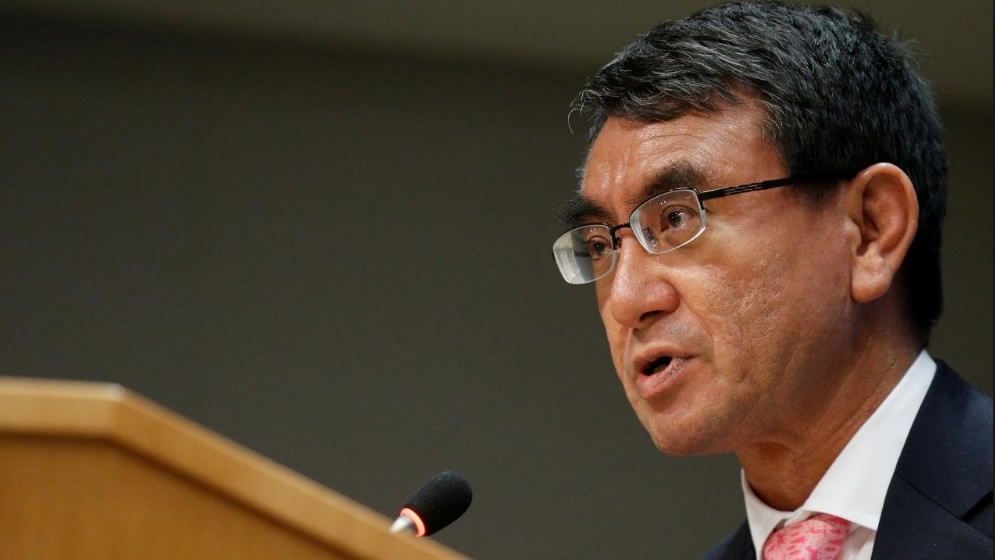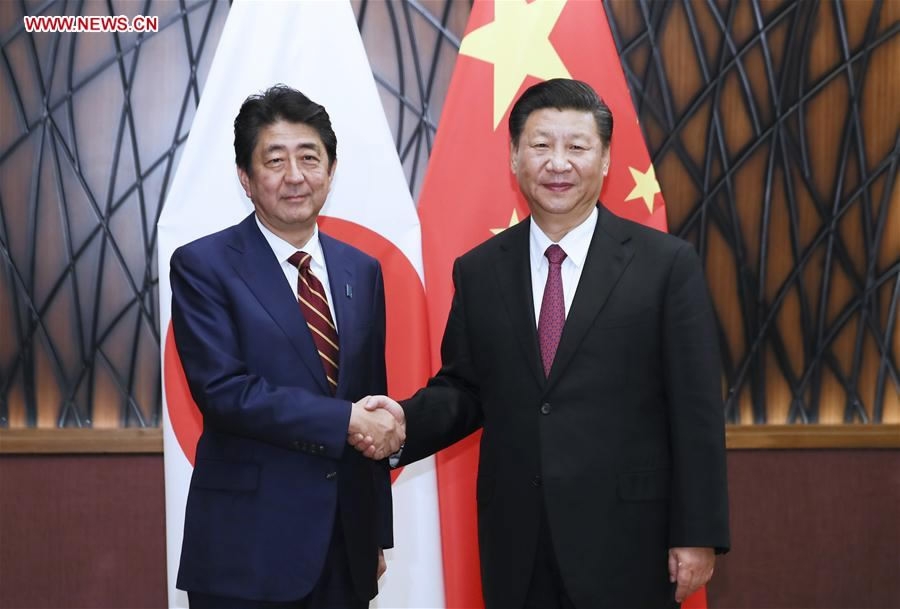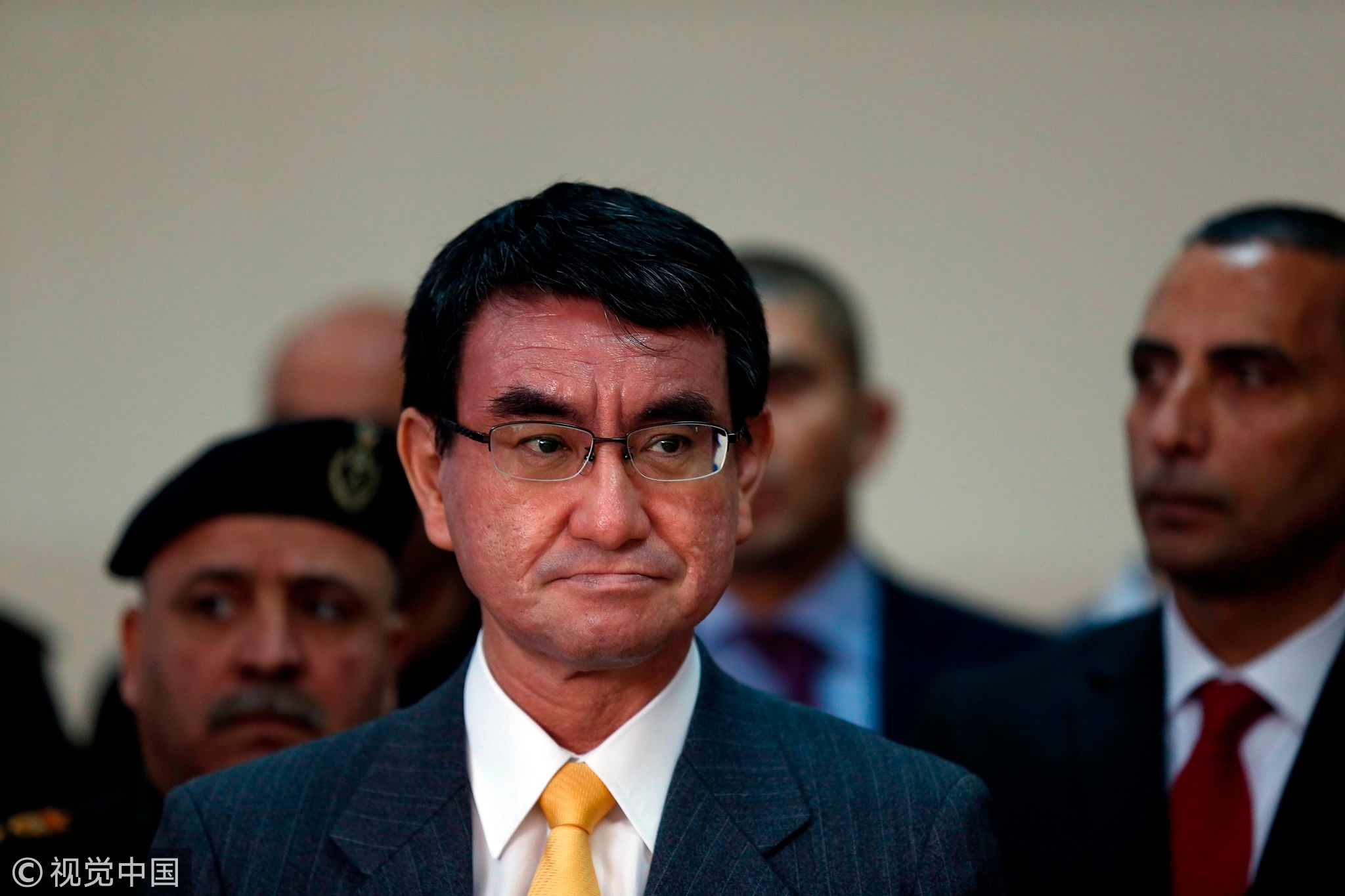
Politics
16:54, 26-Jan-2018
Japan's foreign minister to visit China
CGTN

Japanese Foreign Minister Taro Kono will pay an official visit to China from Jan. 27 to 28, Foreign Ministry spokesperson Hua Chunying announced Friday in Beijing.
"It is Kono's first visit to China since assuming office. Chinese Foreign Minister Wang Yi will hold talks with him and exchange opinions on bilateral ties and issues of common concern," Hua said.
This year marks the 40th anniversary of the signing of the China-Japan Treaty of Peace and Friendship.
"The relationship between China and Japan maintains a momentum of improvement despite various challenges," Hua said, expressing hope that this visit will further promote bilateral ties through implementing the consensus reached by leaders of the two countries.
The trip will be Kono's first to China as foreign minister and the first by a Japanese foreign minister since his predecessor Fumio Kishida visited the country in April 2016.

Chinese President Xi Jinping (R) meets with Japanese Prime Minister Shinzo Abe in Da Nang, Vietnam, Nov. 11, 2017. /Xinhua Photo
Chinese President Xi Jinping (R) meets with Japanese Prime Minister Shinzo Abe in Da Nang, Vietnam, Nov. 11, 2017. /Xinhua Photo
Kono said in a written interview with Chinese media on Friday that he hopes Japan and China could further enhance mutual trust and steadily develop the relationship of friendly cooperation based on the overall interests, as this year marks the 40th anniversary of the signing of the China-Japan Treaty of Peace and Friendship.
Kono said he hopes his visit at the beginning of this year would be a good start for the bilateral relationship.
"I'm willing to promote cooperation and communication between Japan and China in all areas while properly addressing outstanding problems, to further enhance mutual trust and steadily develop bilateral relationship of friendly cooperation based on the concept of strategic and mutually beneficial relations," he said.

Japanese Foreign Minister Taro Kono (C) is shown a scale model during the unveiling of the second phase of the Jericho Agro-Industrial park in the West Bank city of Jericho on Dec. 26, 2017. /VCG Photo
Japanese Foreign Minister Taro Kono (C) is shown a scale model during the unveiling of the second phase of the Jericho Agro-Industrial park in the West Bank city of Jericho on Dec. 26, 2017. /VCG Photo
Noting that this year also marks the 40th anniversary of China's reform and opening up, Kono said over the past 40 years, China has made great achievements and the extensive cooperation between China and Japan has also made much progress.
The total trade value between China and Japan, which was some 5 billion US dollars 40 years ago, now it stands at 60 times of that amount, while the trade interdependence between the two countries deepens, he added.
As the world's second and third largest economies respectively, China and Japan have great responsibility for promoting world peace, stability and prosperity, and improving the bilateral relationship is in the interests of not only the two countries but also the whole international community, he said.
He said the bilateral relationship showed momentum of improvement last year when the two countries marked the 45th anniversary of the normalization of ties.
Last November, Japanese Prime Minister Shinzo Abe met with Chinese President Xi Jinping and Chinese Premier Li Keqiang respectively and they exchanged views on various issues including promoting high-level exchanges, people-to-people communication and economic cooperation. The meetings marked a new beginning for the improvement of bilateral ties, according to Kono.
Regarding cooperation under the China-proposed Belt and Road Initiative, Kono said Japan and China cooperating to address the immense needs for infrastructure in Asia would bring great benefits to the economy of both countries as well as to the prosperity of Asia.
He hoped that during his first visit to China as foreign minister, he would be able to discuss with Chinese officials, including Foreign Minister Wang Yi, the ways to improve bilateral ties, including promoting high-level exchanges.
Source(s): Xinhua News Agency

SITEMAP
Copyright © 2018 CGTN. Beijing ICP prepared NO.16065310-3
Copyright © 2018 CGTN. Beijing ICP prepared NO.16065310-3